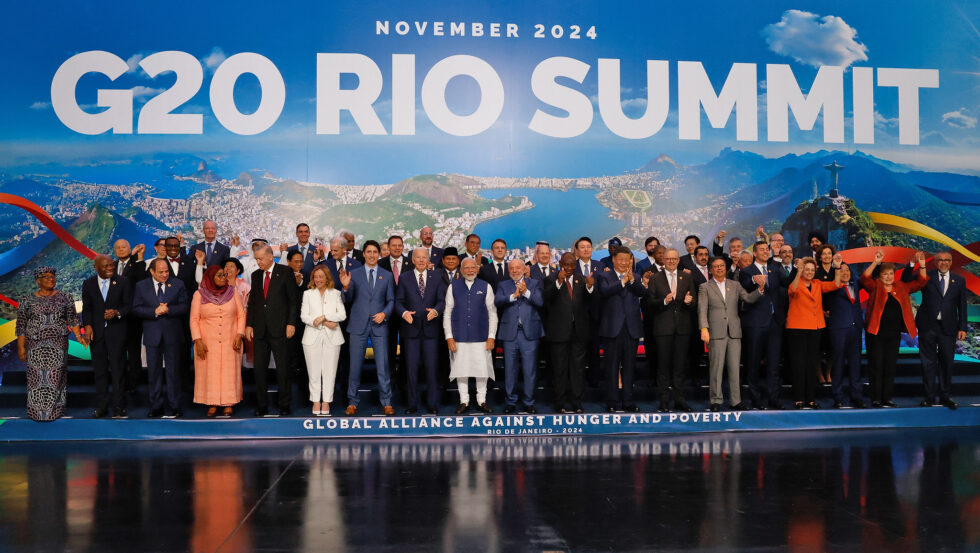 Tânia Rêgo/Agência Brasil
Tânia Rêgo/Agência Brasil The G20 Summit, a group of 19 countries plus the European Union that represent the largest economies in the world, ended on November 19, in Rio de Janeiro. The document approved at the end of the meeting included proposals that had been defended by Brazil, such as combating hunger and poverty, taxing the super-rich, fighting misinformation and seeking gender equality.
The summit’s final declaration stated that the world needs urgent action to address global challenges and that these actions must be fair, inclusive and sustainable. Among the main initiatives is the creation of the Global Alliance Against Hunger and Poverty, launched by President Luiz Inácio Lula da Silva, with the support of 82 countries.
The objective is to eradicate hunger in the world by 2030, highlighting the responsibility of the richest nations, which account for 85% of global GDP, in leading this effort. The document also firmly addresses inequality, stating that climate change and armed conflict disproportionately burden the poorest.
The group reiterated its commitment to a two-state solution to the conflict between Israel and Palestine, condemned attacks on territorial sovereignty and drew attention to the escalation of violence in Lebanon and the Gaza Strip, reinforcing the need for humanitarian assistance and respect to international law.
On the environmental issue, the G20 emphasized the urgency of measures to mitigate climate change and adapt economies to the challenges they bring. Among the commitments are carbon neutrality by 2050, the expansion of renewable energy and the improvement of energy efficiency. To make these actions viable, one of the most discussed proposals was the progressive taxation of wealth, aiming to finance climate adaptation projects and reduce inequalities.
The Brazilian presidency also highlighted technological innovation, with an ethical approach to artificial intelligence (AI). The declaration reinforces that AI must be used to reduce digital inequalities and promote economic opportunities, without ignoring risks to social well-being.
Another central point was the reform of global institutions, such as the UN Security Council, to reflect the political and economic realities of the 21st century. For G20 leaders, structural changes are essential for more transparent and democratic governance.
With the end of the meeting, Brazil passed the presidency of the G20 to South Africa, which will host the next summit.
Source: Agência Brasil.








